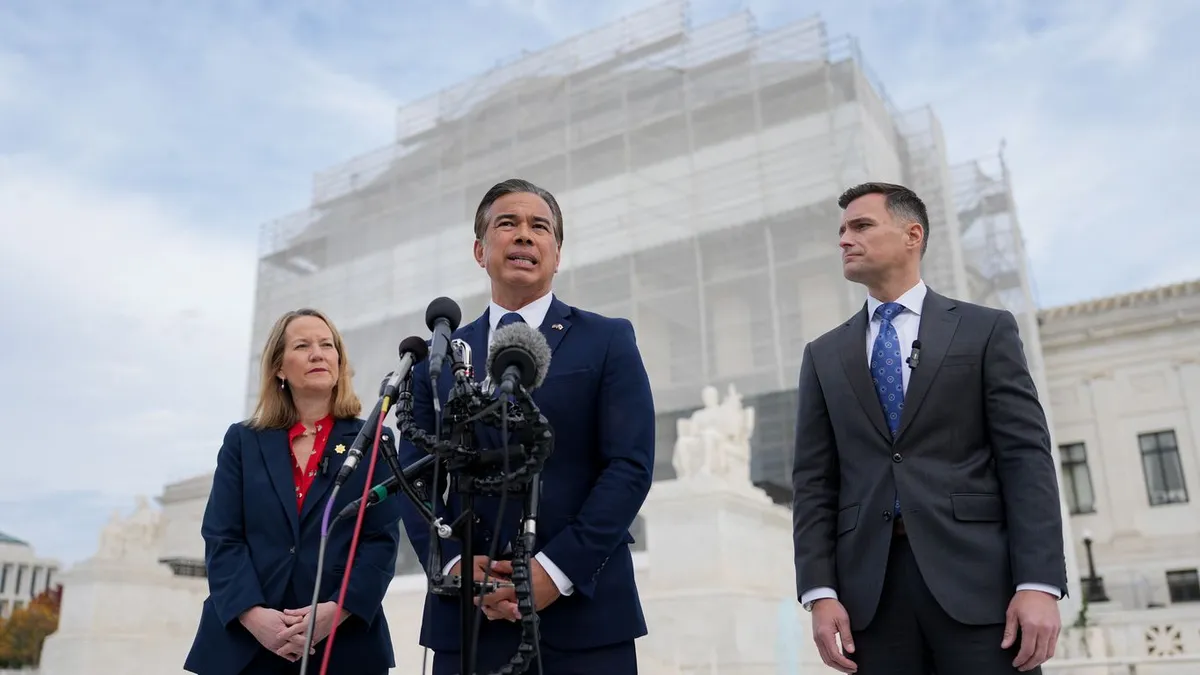
On Wednesday, the Supreme Court justices expressed skepticism regarding President Trump's ability to impose tariffs unilaterally, raising critical questions about the extent of presidential authority in economic matters. This development is significant as it may complicate Trump's economic agenda without completely dismantling it. Legal experts and trade lawyers anticipate that the Supreme Court's eventual ruling could introduce complexities that challenge the straightforward application of the International Emergency Economic Powers Act (IEEPA).
According to Dave Townsend, a partner at Dorsey & Whitney in the international trade practice, there is a strong possibility that the Supreme Court will not simply uphold or strike down the IEEPA tariffs. Instead, the justices may opt for a more nuanced solution that does not lean entirely in one direction. Ryan Majerus, an attorney who served in the Office of the U.S. Trade Representative during Trump's first term, echoed this sentiment, suggesting that the Court might allow the president to impose tariffs under specific conditions while also establishing important limitations on this power.
The oral arguments presented on Wednesday extended nearly three hours, almost double the time allocated by the court. Even justices appointed by Trump displayed skepticism towards the government's stance that the president could bypass Congress to impose extensive tariffs. However, some justices also exhibited caution about restricting a president's emergency powers, raising the question of how such a ruling might affect future administrations.
Justice Neil Gorsuch highlighted concerns regarding the difficulty of reclaiming tariff powers from Congress if the Supreme Court were to grant them to the president, labeling it a "serious retrieval problem." Justice Brent Kavanaugh added that some degree of presidential latitude in tariff implementation could be beneficial, citing Trump's tariffs on India as a strategic move to pressure the country to stop purchasing oil from Russia amid the ongoing conflict in Ukraine. Kavanaugh argued that ruling against the government could eliminate a crucial tool for addressing significant global crises.
The legal challenge against the tariffs contends that the statute governing their enactment necessitates a declaration of an economic emergency, a requirement that the administration's proclamations allegedly fail to meet. Justice Ketanji Brown Jackson appeared doubtful regarding the legitimacy of the drug trafficking emergency cited for the imposition of fentanyl tariffs on Canada, Mexico, and China.
Even if the Supreme Court decides to overturn some or all of Trump's tariffs, the implications of such a ruling remain unclear. Justice Amy Coney Barrett raised concerns about the potential complications of refunding the tariff revenues. Legal analyst Robert Shapiro, a partner at Thompson Coburn, noted that if the Court finds the tariffs unlawful, it may remand the case back to lower courts for further action, complicating the situation further. This uncertainty poses challenges as the accumulated tariff revenue continues to grow while the Supreme Court deliberates.